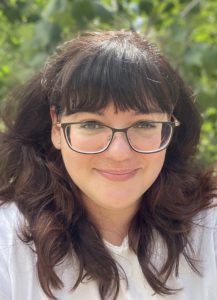Editorial Collective
Teaching Anthropology is curated by an international editorial collective of anthropologists.
Gavin Weston (Editor-in-chief)

Gavin is an anthropologist and Senior Lecturer in the Department of Social Sciences at Bournemouth University. His primary research area is the anthropology of violence and vigilantism (his PhD research at Sussex was on Guatemalan vigilantism), but he has published on a broad array of subjects spanning anthropological controversies, and Dunbar’s number. He is a Senior Fellow of the Higher Education Academy and he is particularly interested in the research and pedagogic potential of student/staff collaborative research. Research collaborations with students have spanned an ethnography of the Antiques Roadshow, a project on anthropologists’ bookshelves and research on children and parents’ recall of gambling advertising. His teaching includes undergraduate and postgraduate modules on controversies, violence and human rights, PhD supervision, as well as running a summer school and outreach work with sixth form colleges. He was an Associate Teacher at the University of Sussex, a Teaching Fellow at Durham University, and Senior Lecturer at Goldsmiths College, University of London, before joining Bournemouth. He can be followed on Twitter at @GavinWeston1
Natalie Djohari (Editor-in-chief)

Natalie is Research Fellow at Southampton University. She is currently working on the ProTechThem project exploring risky ‘sharenting’ practices across social media. Previousy she worked on the multi-partner EU-India research programme ‘Coastal Transformations and Fisher Wellbeing’ (FISHERCOAST) investigating the implications of coastal change over time for the equity, growth and wellbeing of coastal communities. Her research is primarily concerned with affective geographies and the way in which the lived environment transects with social exclusion, coping practice and aspirations, particularly as they relate to children and young people’s education. Previous research projects have explored the role of angling in alternative and complementary education, and the use of experiental learning in moral education among elite international schools. Natalie’s main pedagogical interest is in pushing the development and teaching of qualitative methodologies, which she has been exploing in her involvement in the Staff/Student Collaboration Project at Goldsmiths. Follow Natalie on Twitter @NatalieDjohari
Patrick Alexander (Editor, Schools and Further Education)

Patrick is a social anthropologist specialising in education, childhood and youth studies. He is a Senior Lecturer in Education (Anthropology and Sociology) and Director of the Centre for Educational Development and Consultancy at Oxford Brookes University. In 2014 Patrick was awarded a Fulbright Peabody Scholarship to conduct research as a Visiting Scholar at New York University. This project comprises a two year comparative ethnographic study exploring aspiration and imagined futures in urban public/state schools in NYC and London. Find out more at the project blog. This project is also connected to Patrick’s research project with Professor Graham Butt exploring aspiration and imagined futures in rural and urban contexts in the UK (click here for more). Patrick is a Research Fellow at the Institute of Social and Cultural Anthropology, University of Oxford, and a member of the Association of Social Anthropologists. He is also a board member of the Anthropology of Childhood and Youth Special Interest Group of the American Anthropological Association. Follow Patrick on twitter here
Sherry Fukuzawa (Regional Editor, North America)
 Sherry is the Associate Chair and Assistant Professor Teaching Stream in the Department of Anthropology at the University of Toronto Mississauga, specializing in pedagogical research in biological anthropology, and community-engaged learning with the local Indigenous community. Sherry is currently involved in research investigating ways to utilize technology to implement problem-based learning experiences in biological anthropology. Her online hybridized problem-based learning project called the virtual mystery web-tool has recently been awarded funding to expand to other anthropological sub-disciplines and across disciplines in the humanities, social sciences and sciences. Her primary teaching and research interests involve de-centering knowledge in the Academy to value and respect Indigenous worldviews.
Sherry is the Associate Chair and Assistant Professor Teaching Stream in the Department of Anthropology at the University of Toronto Mississauga, specializing in pedagogical research in biological anthropology, and community-engaged learning with the local Indigenous community. Sherry is currently involved in research investigating ways to utilize technology to implement problem-based learning experiences in biological anthropology. Her online hybridized problem-based learning project called the virtual mystery web-tool has recently been awarded funding to expand to other anthropological sub-disciplines and across disciplines in the humanities, social sciences and sciences. Her primary teaching and research interests involve de-centering knowledge in the Academy to value and respect Indigenous worldviews.
Stacey Ward (Regional Editor, Asia-Pacific)

Stacey is Lecturer in Biological Anthropology at the Australian National University, specialising in the analysis of archaeological human remains. Stacey’s current research foci include exploring the effectiveness of online practical training in biological anthropology, exploring the global dispersal of intentional cranial modification behaviours using spatial statistics, and investigating the biocultural impacts of large-scale social change in late prehistoric communities in Northeast Thailand. Her previous research investigated heavy metal exposure among early Bronze Age metallurgists in Thailand, a characterisation of cremation practices in historic Laos, and an exploration of the relationship between health and social inequality in ancient Thailand. Stacey is an enthusiastic and award-winning teacher, using active, authentic, and experiential teaching approaches to introduce learners to basic and advanced human skeletal analysis and forensic anthropology. She was recently appointed Fellow of the Higher Education Academy. Follow Stacey on X (Twitter): @wardstaceym
Genner Llanes Ortiz (Regional Editor, Central and South America)

Genner is a Maya scholar from Yucatán, México. He trained as a social anthropologist at the Universidad Autónoma de Yucatan (UADY), and completed a DPhil in Social Anthropology in 2010 at the University of Sussex. He is curently Canada Research Chair in Digital Indigeneities at Bishop’s University. His research is concerned with Indigenous knowledge, organizations and performing arts, as well as intercultural dialogue. He has worked collaboratively with Yucatec Maya in Mexico, and other peoples in the Americas, such as the Wayana in Surinam and the Kichwa in Ecuador. His research has explored forms of representing Indigenous knowledge in intercultural education in Latin America, and more recently, focuses on Indigenous artistic forms in relation to language revitalization, anti-racism and decolonization. He is currently involved in the Twinning Project Engaged humanities in Europe: Capacity building for participatory research in linguistic-cultural heritage. He previously worked in the “Indigeneity in the Contemporary World” project in Royal Holloway University of London, and also in the Centro de Investigaciones y Estudios Superiores en Antropología Social (CIESAS) in Mexico City.
Ioannis Manos (Regional Editor, Europe)
 Ioannis is assistant professor in the Department of Balkan, Slavic and Oriental Studies at the University of Macedonia in Thessaloniki (Greece). He studied History and Archaeology at the Aristotle University of Thessaloniki and Social Anthropology at the Universities of Hamburg, Germany and Sussex, UK, where he received a post graduate certificate in social research methods (Graduate School in Social Sciences, Sussex University). His research interests focus on Southeast Europe and the geopolitical borders and border regions, nationalism and identity politics, anthropology of dance, methodology of teaching anthropology and epistemology and methodology of research. He is a founding member of the «Border Crossings Network», an academic network for the Anthropology in Southeast Europe and serves as member of its Advisory Board and co-editor of its publications series. He has also served as president of InASEA (International Association for Southeast European Anthropology) and a member of the Advisory Board. He is currently co-convenor of the EASA – Teaching Anthropology Network.
Ioannis is assistant professor in the Department of Balkan, Slavic and Oriental Studies at the University of Macedonia in Thessaloniki (Greece). He studied History and Archaeology at the Aristotle University of Thessaloniki and Social Anthropology at the Universities of Hamburg, Germany and Sussex, UK, where he received a post graduate certificate in social research methods (Graduate School in Social Sciences, Sussex University). His research interests focus on Southeast Europe and the geopolitical borders and border regions, nationalism and identity politics, anthropology of dance, methodology of teaching anthropology and epistemology and methodology of research. He is a founding member of the «Border Crossings Network», an academic network for the Anthropology in Southeast Europe and serves as member of its Advisory Board and co-editor of its publications series. He has also served as president of InASEA (International Association for Southeast European Anthropology) and a member of the Advisory Board. He is currently co-convenor of the EASA – Teaching Anthropology Network.
Proffesor Joy Owen (Regional Editor, Africa)
 Joy is a single mother to a toddler, and also heads the Anthropology department at the University of the Free State in Bloemfontein, South Africa. Prior to her employment at UFS, she was the head of the Anthropology department and the Deputy Dean of Humanities (Teaching and Learning) at Rhodes University (Grahamstown) during the #feesmustfall movement in higher education institutions in South Africa. Her research interests include critical pedagogy, the art of anthropological fieldwork, ethnographic writing, social capital, intersectionality and transnational migration. Her more recent research projects consider the decolonial ‘project’ in higher education in South Africa, motherhood in the academy and the narratives of contemporary ‘self-exiled’ transmigrant South Africa. In 2019 she was a TORCH Global South Visiting Professors to Oxford where she was involved in the organisation of the conference ‘Racialisation and Publicness in Africa and the African Diaspora’.
Joy is a single mother to a toddler, and also heads the Anthropology department at the University of the Free State in Bloemfontein, South Africa. Prior to her employment at UFS, she was the head of the Anthropology department and the Deputy Dean of Humanities (Teaching and Learning) at Rhodes University (Grahamstown) during the #feesmustfall movement in higher education institutions in South Africa. Her research interests include critical pedagogy, the art of anthropological fieldwork, ethnographic writing, social capital, intersectionality and transnational migration. Her more recent research projects consider the decolonial ‘project’ in higher education in South Africa, motherhood in the academy and the narratives of contemporary ‘self-exiled’ transmigrant South Africa. In 2019 she was a TORCH Global South Visiting Professors to Oxford where she was involved in the organisation of the conference ‘Racialisation and Publicness in Africa and the African Diaspora’.
Emily Stevenson (Editor, Multimedia and Resources)
 Emily is currently Leverhulme Early Career Fellow, Pitt Rivers Museum, University of Oxford. Her research sits at the intersection of visual and historical anthropology with a regional focus on India. Her PhD research at SOAS explored the ongoing social life of British Indian picture postcards in Bengaluru (‘India’s Silicon Valley’) from their production in the context of colonialism into the postcolonial present. Her research interests also include wider photographic histories, the production of heritage and experiences of urban change. Since 2018 Emily has been working collaboratively on a project exploring historical picture postcards of South Asia with Dr Stephen Hughes, which can be followed on Instagram @picture_postcard_empire. At the University of St Andrews, she taught both undergraduate and postgraduate modules on material culture, Indian visual culture, anthropology and art, and anthropological research methods. Pedagogically, she is particularly interested in how the use of multimedia and experimental, practical activities can enrich anthropological learning.
Emily is currently Leverhulme Early Career Fellow, Pitt Rivers Museum, University of Oxford. Her research sits at the intersection of visual and historical anthropology with a regional focus on India. Her PhD research at SOAS explored the ongoing social life of British Indian picture postcards in Bengaluru (‘India’s Silicon Valley’) from their production in the context of colonialism into the postcolonial present. Her research interests also include wider photographic histories, the production of heritage and experiences of urban change. Since 2018 Emily has been working collaboratively on a project exploring historical picture postcards of South Asia with Dr Stephen Hughes, which can be followed on Instagram @picture_postcard_empire. At the University of St Andrews, she taught both undergraduate and postgraduate modules on material culture, Indian visual culture, anthropology and art, and anthropological research methods. Pedagogically, she is particularly interested in how the use of multimedia and experimental, practical activities can enrich anthropological learning.
